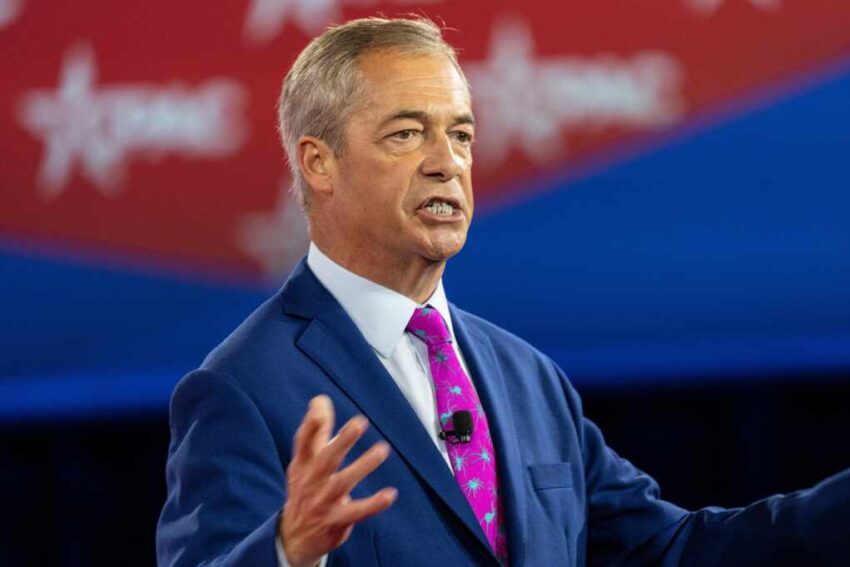As Vice President JD Vance forges ties with Reform UK’s Nigel Farage, transatlantic populism surges—threatening to upend establishment politics and embolden nationalist agendas on both sides of the Atlantic.
Story Snapshot
- JD Vance, U.S. Vice President, met with Reform UK leader Nigel Farage during a family trip to England amid dramatic gains for right-wing populism.
- Farage’s Reform UK recently secured five seats in Parliament, challenging the traditional two-party system in Britain.
- The Vance-Farage meeting signals deepening ideological and strategic collaboration between American and British populist movements.
- The rise of these alliances is reshaping debates on immigration, national identity, and conservative values in the U.S. and U.K.
Vance-Farage Meeting Highlights a New Era for Conservative Populism
Early August 2025 saw U.S. Vice President JD Vance and his family visit the Cotswolds in England, where Vance met privately with Nigel Farage, the influential leader of Reform UK. Farage’s party had just achieved a historic breakthrough in Britain’s July 2024 general election—winning five parliamentary seats and more than four million votes. The timing of the meeting underscores a moment of ideological alignment, as conservative populism gains traction against entrenched establishment parties in both countries.
According to Nigel Farage and Reform UK Election Impact | Time, both Vance and Farage are known for rejecting globalist policies, supporting strong national borders, and opposing what they call “woke” agendas. Their meeting, reported by major outlets, marks the latest in a series of transatlantic dialogues among right-wing leaders. Farage’s history includes leading the Brexit campaign and founding Reform UK, which grew from the Brexit Party’s drive to reclaim British sovereignty and curb mass immigration. Vance, meanwhile, has become a leading voice for American nationalism and traditional values as Vice President.
Reform UK’s Disruption: From Fringe to Force
Nigel Farage has long been a polarizing figure in British politics, co-founding UKIP in 1993 and later launching the Brexit Party, which rebranded as Reform UK in 2021. Reform UK’s recent electoral success reflects deep voter dissatisfaction with mainstream Conservatives and Labour, particularly on issues of immigration, taxation, and environmental mandates. The party’s platform opposes net-zero climate targets, calls for stricter immigration controls, and promotes lower taxes—policies resonating with working-class Britons wary of government overreach and erosion of national identity.
Farage’s leadership style is both admired and criticized for its centralization of power and combative rhetoric. His return as an MP and party leader has energized supporters demanding a break from legacy politics. Reform UK’s rise has pressured the Conservative establishment to reconsider its stance on immigration and sovereignty, with Farage vowing to maintain independence from establishment parties. The party’s disruptive presence signals a realignment of British conservatism and highlights the appeal of unapologetic populist messaging.
Transatlantic Strategy: Populist Collaboration and Its Impact
The Vance-Farage meeting is more than a diplomatic courtesy; it represents a strategic alignment of populist forces determined to reshape politics in the U.S. and U.K. Both leaders are leveraging dissatisfaction with elites, open borders, and expansive government. Vance’s interest in Reform UK’s tactics reflects a broader effort to coordinate messaging and policy approaches across the Atlantic. Analysts quoted in Nigel Farage and Reform UK Election Impact | Time notes that such alliances could influence campaign strategies, voter mobilization, and legislative platforms—potentially shifting the Overton window on immigration, sovereignty, and national values in both countries.
Critics warn that the rise of populist parties risks deepening polarization and undermining liberal democratic norms. However, supporters argue that such collaboration revitalizes debate and challenges entrenched elites who have, in their view, failed to protect constitutional rights, border security, and traditional values. The meeting in the Cotswolds signals that this ideological realignment is not confined by national borders; it is a coordinated response to years of frustration with establishment governance.
JD Vance Meets With Reform UK Leader Nigel Farage | https://t.co/igEaydeWYl https://t.co/x8kceTiRMS
— ConservativeLibrarian (@ConserLibrarian) August 13, 2025
While no official readout of the Vance-Farage discussion has been released, the context and timing make the implications clear. Both men are principal decision-makers in their respective movements, and their alliance is set to shape future debates on sovereignty, family, and the limits of government intervention. As populist parties continue to gain ground, mainstream parties face mounting pressure to address issues like illegal immigration, fiscal responsibility, and the protection of individual liberties. The long-term impact may be a fundamental transformation of center-right politics in the West.
Sources:
Reform UK – Wikipedia
Nigel Farage | Biography, Brexit, & Facts | Britannica
Nigel Farage – Wikipedia
Farage and Reform UK: A clear and present danger? – International Socialism
Nigel Farage and Reform UK Election Impact | Time
Click this link for the original source of this article.
Author: Editor
This content is courtesy of, and owned and copyrighted by, https://republicanpost.net and its author. This content is made available by use of the public RSS feed offered by the host site and is used for educational purposes only. If you are the author or represent the host site and would like this content removed now and in the future, please contact USSANews.com using the email address in the Contact page found in the website menu.








